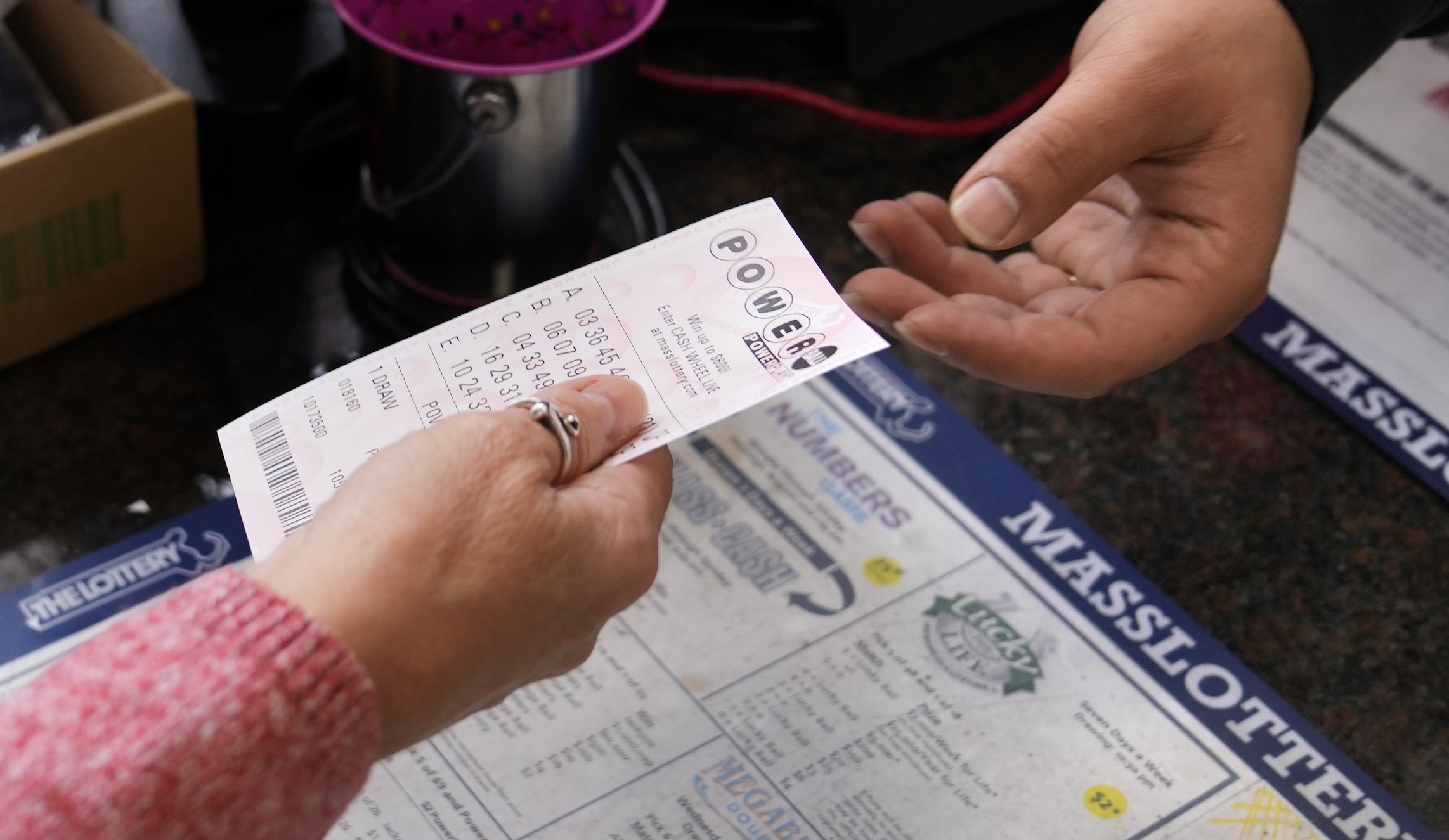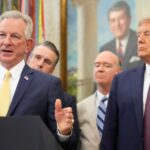

Despite being known for its gaming industry and casinos, Nevada is one of five states without a statewide lottery. That’s by design.
A statewide lottery is banned in Nevada’s 159-year-old constitution. The constitution was written when lotteries were seen as corrupt and coincided with a series of national reforms, most famously abolition, that swept the United States in the 1800s.
“By the early 19th century, most lotteries were crooked. These lotteries were either not giving the prize, or being fixed,” Michael Green, a history professor at the University of Nevada, Las Vegas who specializes in Nevada and Las Vegas history, told the Washington Examiner.
The casino industry has made sure statewide lotteries have remained banned, and neighboring states such as California and Arizona are reaping the benefits while locals miss out. However, a change to the ban may be within reach.
In 2023, Assemblyman Cameron “C.H.” Miller introduced an amendment to enact a statewide lottery, with revenue from the lottery allocated to mental health funding.
“This constitutional amendment authorizing a lottery and dedicating the revenue to funding for youth mental health is a common sense solution that will help the many Nevada youth who are battling mental health challenges, just like I did as a child,” Miller said.
“Right now, we are sending millions of dollars across the border to neighboring states. It is time to fully invest in Nevadans and pass this constitutional amendment,” he said. Mississippi, the most recent state to enact a statewide lottery, has seen $488 million generated since 2019, all dedicated to the state’s Department of Transportation and Department of Education.
The road to the amendment may be bumpy, though. Since 1975, there have been 30 failed attempts at amending the state’s constitution to enact the lottery. The casino industry, one of the state’s most powerful entities, has long posed a barrier to the change.
The casino industry says “there’s not really a lot of creation of jobs and economic development” in statewide lotteries, Mark Nichols, an economics professor at the University of Nevada, Reno who studies the gaming industry, told the Washington Examiner. The casino industry is the largest employer in Las Vegas, the state’s population center.
“That would take away from the gaming industry’s ability to do what it does best, which is to create new jobs and generate new revenue for the states, so it would come at the expense of something else,” Virginia Valentine, president of the Nevada Resorts Association, said on the topic of a statewide lottery in 2016.
Nichols said that argument only works to a certain extent, as many games within casinos and in places such as grocery stores, bars, and airports across Nevada also don’t require someone to man them.
“Grocery stores, convenience stores, pretty much most bars have slot machines in them as well,” Nichols said. “But those don’t create a lot of jobs, don’t create a lot of economic development. People don’t travel across the country to do that and say, ‘Hey, let’s go to that 7/11 and play.’”
“Everyone’s operating already in states where there are lotteries. They’re doing fine. They’re doing well,” Miller said. “The operation of a lottery could compete with their business, and it’s my position that it shouldn’t be a competition. We can be partners together.”
Still, based on other states with both legalized gambling and lotteries, there seems to be little competition between the two, such as in Massachusetts.
“In Massachusetts, we actually had lottery data at the outlet level, so we knew what every single store in Massachusetts sold as far as lottery tickets,” Nichols said. “We looked at what happened to lottery sales after casinos in Massachusetts opened, and really we did not see any kind of decrease in lottery sales whatsoever.”
He said they examined individual store data near casinos and found that industries had no effect on each other’s sales.
Nicols said the lottery entices people because casinos don’t offer games with such high winnings for such a low dollar amount bet. Nichols also said Nevadans are aware of the ins and outs of gaming like scratch cards, which are also small-dollar buy-ins, but low earnings as compared to the lottery.
“Most people that gamble, particularly that gamble regularly and live in Nevada, they know that they’re probably not going to be too enticed to play scratch cards,” Nichols said.
A lottery would then be mostly bought by residents, not people traveling to Nevada to gamble because they can likely buy a lottery ticket in their home state.
“Tourists might make it part of their experience. I’m not sold on its importance to tourism, since it’s available elsewhere,” Green said.
Without having a statewide lottery, Nevada is losing out on millions of dollars of sales to neighboring states.
A 2016 report showed a lotto store in the California-Nevada border town of Primm, 30 minutes south of Las Vegas with a population of 1,000, sold $13 million worth of lottery tickets in a single year. That road that divides the two states is called “Lotto Store Road.”
CLICK HERE TO READ MORE FROM THE WASHINGTON EXAMINER
“There’s a store that’s right here on the border; it’s 10 miles from where I’m sitting, and that’s, I think, one of California’s best outlets for lottery sales,” Nichols said. “The border literally goes right down the middle of the store. So, on one side, you can buy lottery tickets, and on one side, you can use slot machines.”
It’ll be a long and uphill battle for Miller’s amendment legalizing a statewide lottery. The legislature would have to vote again on the bill in 2025. Then the law would be put on a ballot for a statewide vote. The earliest estimate places the vote on a 2027 ballot.







